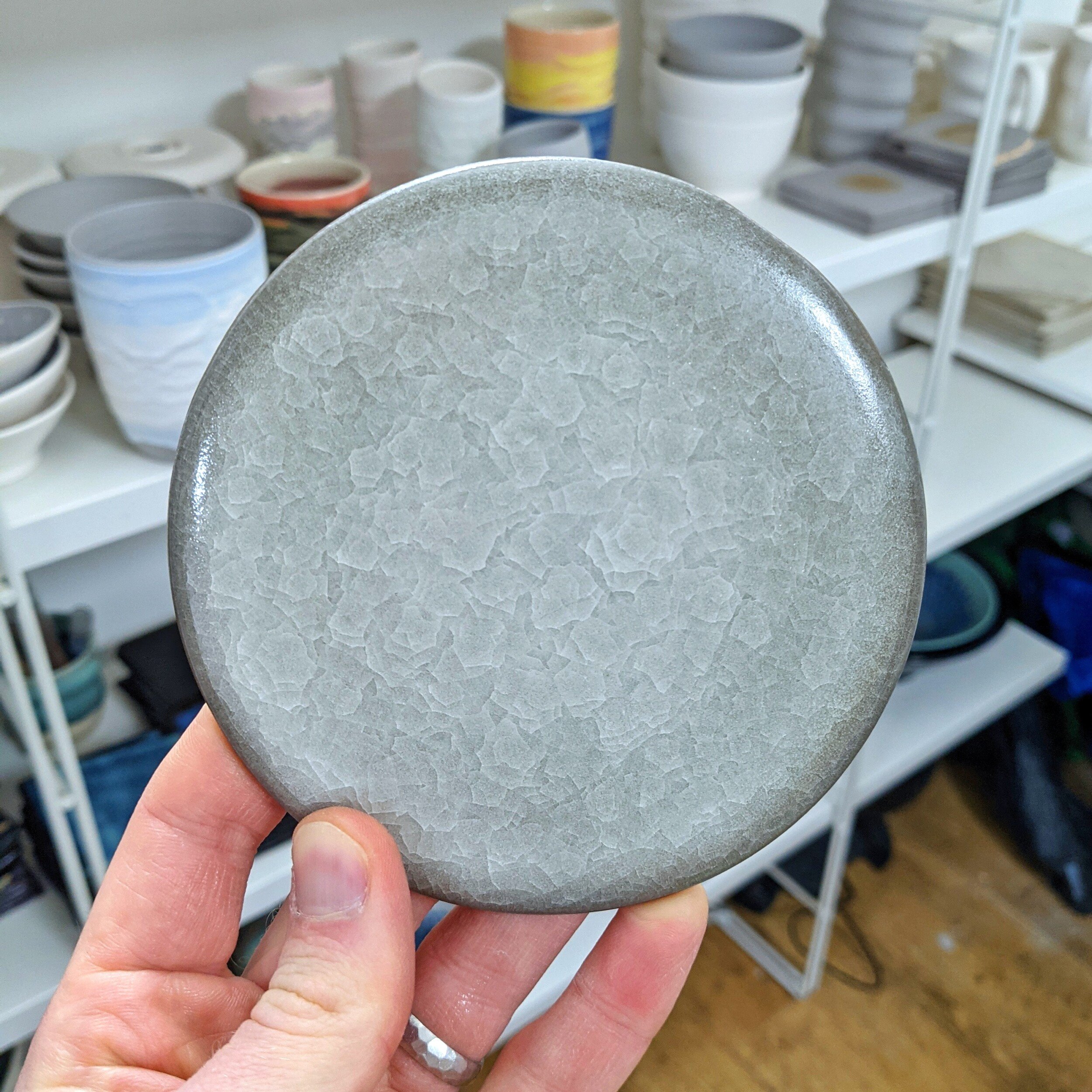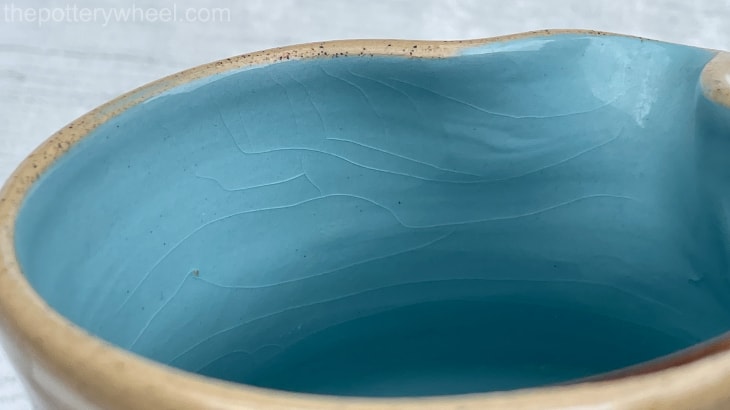Ever unloaded your dishwasher, only to find your favorite glassware marred by a network of tiny cracks? This frustrating occurrence is known as crazing, and it can leave your cherished pieces looking worn and fragile.
If you’ve ever wondered why this happens or how you can prevent it, you’re not alone. Understanding the causes of crazing is crucial for anyone who wants to preserve the beauty and longevity of their dishware. We’ll explore the mysterious connection between dishwashers and crazing, and reveal the steps you can take to protect your dishes.
Stick with us, and you’ll discover simple yet effective solutions to keep your glassware looking its best.
Causes Of Glass Crazing In Dishwashers
Have you ever noticed those fine, spider-web-like cracks on your glassware after a run in the dishwasher? It’s not just your imagination. This phenomenon, known as glass crazing, can be frustrating for anyone who enjoys their glassware looking pristine. Understanding the root causes can help you prevent further damage and extend the life of your glasses. Let’s explore the primary culprits behind glass crazing in dishwashers.
Temperature Fluctuations
One major cause of glass crazing is rapid temperature changes. Dishwashers typically use hot water to clean effectively, but sudden shifts between hot and cold can stress glassware. Just as a hot cup of coffee might crack if placed on a cold surface, your glasses can suffer in a similar fashion.
Consider adjusting your dishwasher settings to a lower heat drying option. This can help reduce the temperature shock that your glassware experiences. Have you ever tried touching a glass straight out of the dishwasher? If it’s too hot to handle, it might be time to adjust those settings.
Harsh Detergents
Not all dishwasher detergents are gentle on glass. Some contain abrasive chemicals that can erode the surface of your glassware over time. This erosion makes the glass more susceptible to crazing.
Switching to a milder detergent can make a significant difference. Look for products labeled as glass-friendly or specifically designed to prevent etching. Have you checked the ingredients in your current detergent?
High Water Pressure
Think about how forceful water jets in a dishwasher can be. While effective for cleaning, high pressure can contribute to glass crazing. The intense spray can physically impact the surface of your glassware, leading to those tiny cracks.
If your dishwasher allows, adjust the water pressure settings. A gentler wash might be all your delicate glasses need. Have you ever noticed how different your glasses feel after a softer wash?
Age And Quality Of Glassware
Older glassware or those of lesser quality are more vulnerable to crazing. Over time, glass can weaken, especially if it’s been through many dishwasher cycles. You might have a set of glasses you inherited or bought on a budget, and these might be showing more signs of wear.
Consider evaluating the quality of your glassware. Investing in higher-quality glasses can save you money in the long run. How old is your oldest set of glasses, and how often do you replace them?
By addressing these factors, you can help keep your glassware looking like new. What steps will you take to protect your glassware from now on?

Credit: www.soulceramics.com
Signs Of Glass Crazing
Dishwashers are a modern convenience, but they can cause glass crazing. This happens when fine cracks appear on the glass surface. These cracks might seem harmless but can affect the glass over time. Understanding the signs of glass crazing helps in maintaining your glassware.
Visual Indicators
Look closely at your glassware. Tiny, web-like cracks are a clear sign. These cracks often appear after frequent dishwasher use. Some glasses might show a dull or foggy appearance. This dullness is another sign of crazing. Check your glasses under bright light. It helps reveal hidden cracks.
Impact On Glass Strength
Crazing weakens the glass. These tiny cracks reduce its overall strength. Glass becomes more prone to breaking. Even a slight bump can cause a crack to expand. This makes the glass unsafe for use. Using crazed glassware poses a risk during everyday activities. It’s important to replace severely crazed items.
Preventive Measures For Glass Crazing
Dishwasher cycles often cause glass crazing, a network of fine cracks. Lower wash temperatures can help prevent this. Choosing a gentle detergent is also crucial. Avoiding extreme temperature changes further protects your glassware.
Glass crazing can be frustrating, especially when you find your favorite glasses marred by tiny cracks. But worry not, there are preventive measures you can adopt to ensure your glassware remains pristine and crack-free. These measures not only protect your glassware but also optimize your dishwasher’s performance. Let’s delve into some practical steps you can take to prevent crazing.Choosing The Right Detergent
Selecting a suitable detergent plays a crucial role in maintaining the integrity of your glassware. Avoid harsh detergents that contain abrasive compounds; they can damage the surface of your glasses. Opt for mild and eco-friendly alternatives that are gentler on glass.Notice how your glassware reacts after using different detergents. If you observe any dulling or etching, it might be time to switch. Your choice of detergent can make or break the longevity of your glassware.Adjusting Dishwasher Settings
Tweaking your dishwasher settings can be a game-changer. High temperatures might seem effective, but they can lead to crazing over time. Reduce the heat settings to protect your glassware from thermal shock.Consider shorter wash cycles. They are not only energy-efficient but also gentler on delicate items. A small adjustment can preserve the beauty of your glassware for years.Handling Glassware With Care
How you load your dishwasher matters. Place glasses securely to prevent them from clinking against each other during the cycle. Avoid overcrowding to reduce the risk of accidental breakage.Think about the way you unload too. Allow glasses to cool down before handling them. This simple act can prevent sudden temperature changes that might cause crazing.Have you ever experienced the disappointment of finding your favorite glass cracked? By taking these preventive steps, you can avoid such scenarios and enjoy your glassware longer. Your attention to detail can save you from the hassle of replacing damaged items frequently.
Credit: www.oldforgecreations.co.uk
Best Practices For Dishwasher Use
Dishwashers save time and energy in our busy lives. Using them correctly prevents issues like crazing on dishes. Crazing causes tiny cracks that spoil your dishware. Following best practices ensures your dishes stay safe and clean.
Loading Techniques
Proper loading keeps dishes safe during wash cycles. Place larger items on the sides to allow water to circulate. Avoid overcrowding; each item needs space for water and detergent access. Arrange glassware on the upper rack to prevent pressure cracks. Securely place items, avoiding overlap, for even washing.
Regular Maintenance
Maintenance keeps your dishwasher running smoothly. Clean the filter monthly to remove trapped food particles. Check spray arms for blockages. Ensure they rotate freely. Wipe the door seal regularly to prevent mold and odor. Use dishwasher cleaner every few months to remove mineral buildup. Regular checks extend the lifespan of your appliance.
Alternatives To Dishwashing For Delicate Glassware
Dishwashers are convenient but can damage delicate glassware. Crazing, the fine cracks that appear on glass, can ruin your favorite pieces. Protecting your glassware is essential. Explore other ways to clean without risking damage. Hand washing and protective coatings offer safe alternatives.
Hand Washing Techniques
Hand washing is gentle and effective for delicate glassware. Use lukewarm water to prevent thermal shock. Avoid hot water, which can stress the glass. Choose a mild detergent without abrasives. Harsh chemicals can scratch and weaken glass. Use a soft sponge or cloth. Scrub gently to avoid applying pressure. Rinse thoroughly with clean water.
Dry glassware with a lint-free towel. Ensure no moisture remains to prevent spots. Handle each piece carefully to avoid accidental drops. Store glasses upright to avoid pressure on rims. Regular hand washing preserves the integrity of your glassware.
Protective Coatings
Protective coatings offer an extra layer of safety. These coatings act as a shield against damage. They can prevent crazing and scratches. Choose coatings designed for glassware. Apply them evenly and let them dry completely. Coatings can extend the life of your delicate pieces.
Ensure the coating is food-safe. Some coatings may alter the appearance. Test a small area before full application. Use coatings in combination with hand washing for best results. This method maintains the beauty and quality of glassware.

Credit: thepotterywheel.com
Choosing Durable Glassware
Dishwashers can lead to crazing in glassware, making it look scratched and worn over time. Choosing durable glassware helps minimize this effect, ensuring your glasses stay clear and beautiful. Look for options labeled dishwasher-safe and crafted from strong materials.
Choosing durable glassware can be quite the task, especially if you want to avoid the dreaded problem of crazing. Crazing refers to those tiny cracks that can appear on the surface of your glassware after repeated use in the dishwasher. By selecting the right glassware, you can keep your dishes looking pristine and extend their lifespan.Material Considerations
When selecting glassware, the material is key. Opt for materials known for their durability, such as tempered glass or borosilicate glass. These types of glass are designed to withstand sudden temperature changes, which is often the culprit behind crazing.Consider how often you use your dishwasher. If you frequently rely on it, investing in high-quality materials can save you money in the long run. It’s also worth noting that some glassware may be labeled as “dishwasher safe” but still prone to crazing over time.Recommended Brands
Several brands stand out for their durable glassware. Libbey and Anchor Hocking are two brands that consistently receive high marks for their tough glass products. They offer a variety of styles, so you can find something that suits your taste and withstands the dishwasher cycle.Another brand to consider is Duralex, known for its impact-resistant glassware. Their products are not only durable but also stylish, making them a great addition to any kitchen.Have you ever been frustrated by glassware that doesn’t live up to its promises? Choosing the right brand can make all the difference. Investing in well-regarded names in the market can give you peace of mind and save you from the disappointment of replacing your glassware frequently.In the end, the goal is to enjoy your meals without worrying about your dishes. By focusing on material and brand, you can make a smart choice that fits both your lifestyle and budget. What will you consider when choosing your next set of glassware?Frequently Asked Questions
What Causes Crazing In Dishes After Dishwasher Use?
Crazing occurs from temperature changes in dishware. High heat and harsh detergents can weaken the glaze.
How Can I Prevent Crazing In My Dishes?
Use gentle detergents and lower temperature settings. Avoid overloading the dishwasher for better circulation.
Does Crazing Affect The Safety Of Dishes?
Yes, crazing can harbor bacteria. Replace crazed dishes to ensure safe food consumption.
Are Certain Materials More Prone To Crazing?
Porcelain and earthenware are more susceptible. Their glazes crack easily under thermal stress.
Can I Repair Crazed Dishes?
Repairing is challenging. It’s better to replace crazed dishes to maintain hygiene and appearance.
Conclusion
Crazing in dishes can be a common issue with dishwashers. Understanding its causes helps prevent damage. Check your dishwasher settings regularly. Use milder detergents to protect your dishes. Avoid overcrowding to ensure even washing. Monitor water temperature to avoid excessive heat.
Proper care extends the life of your dishware. Simple changes can make a big difference. Keep your plates looking new with these tips. Your dishes deserve the best care. Enjoy using them without worry. Keep these strategies in mind for lasting results.
Happy dishwashing!
